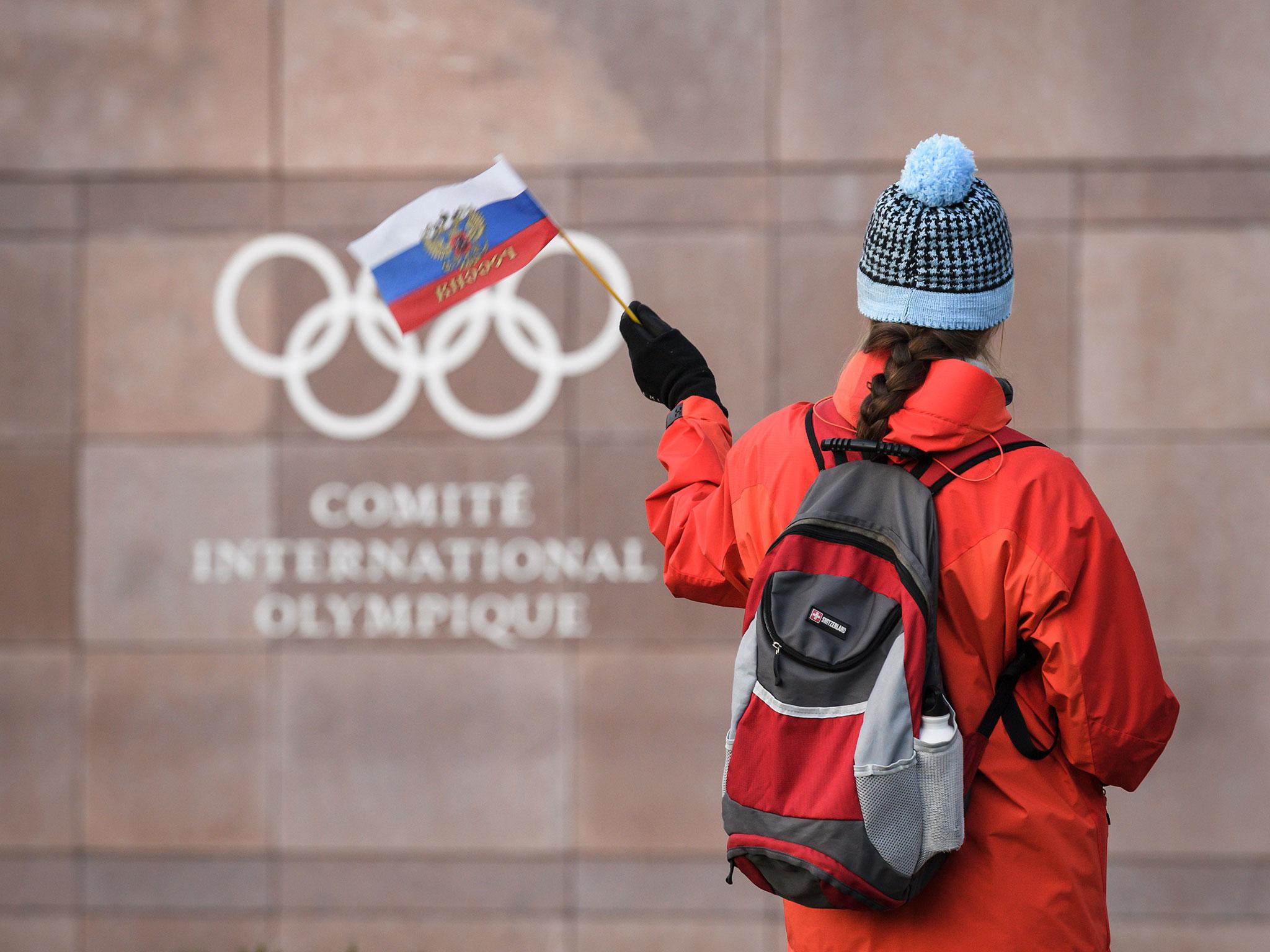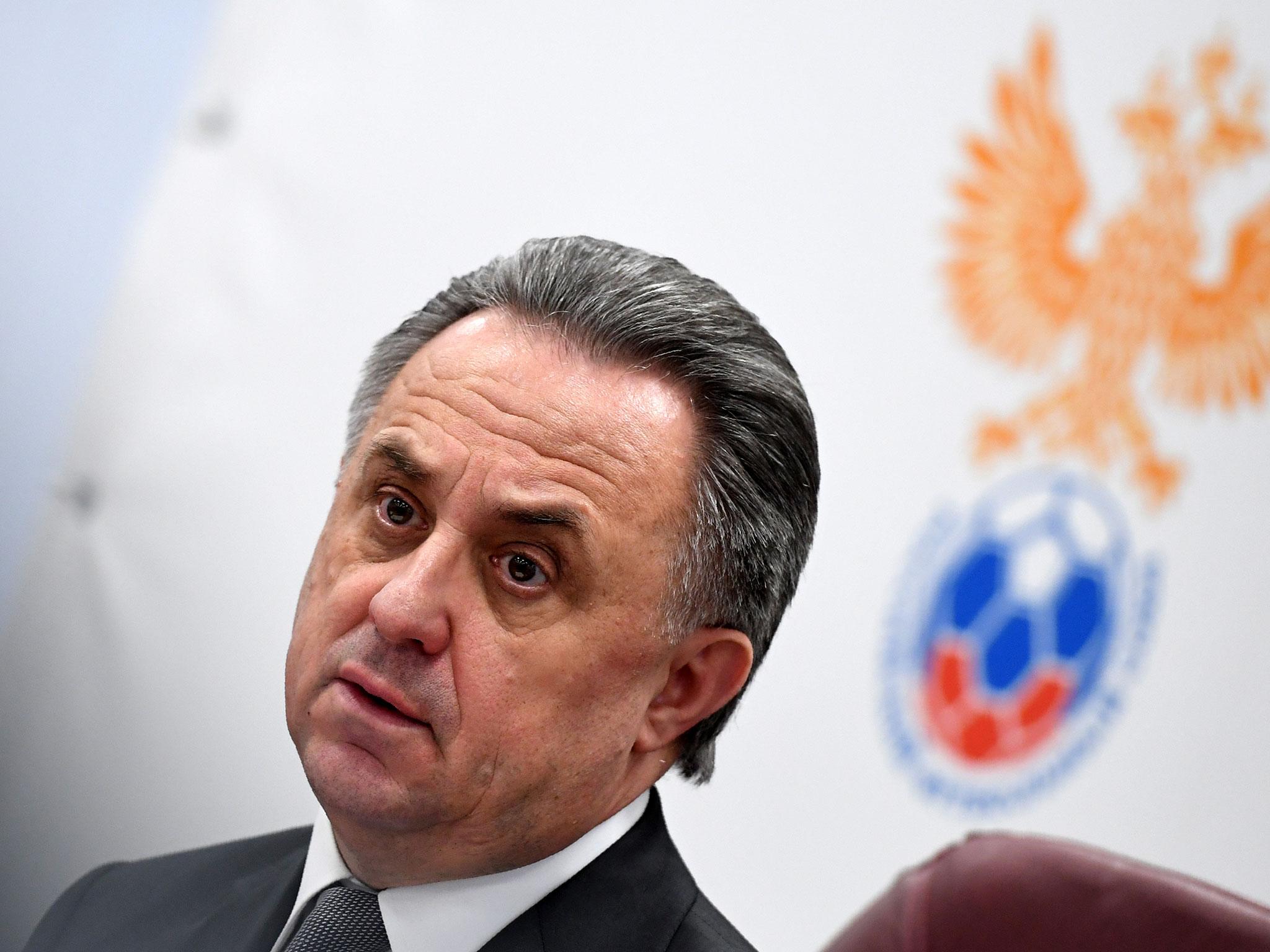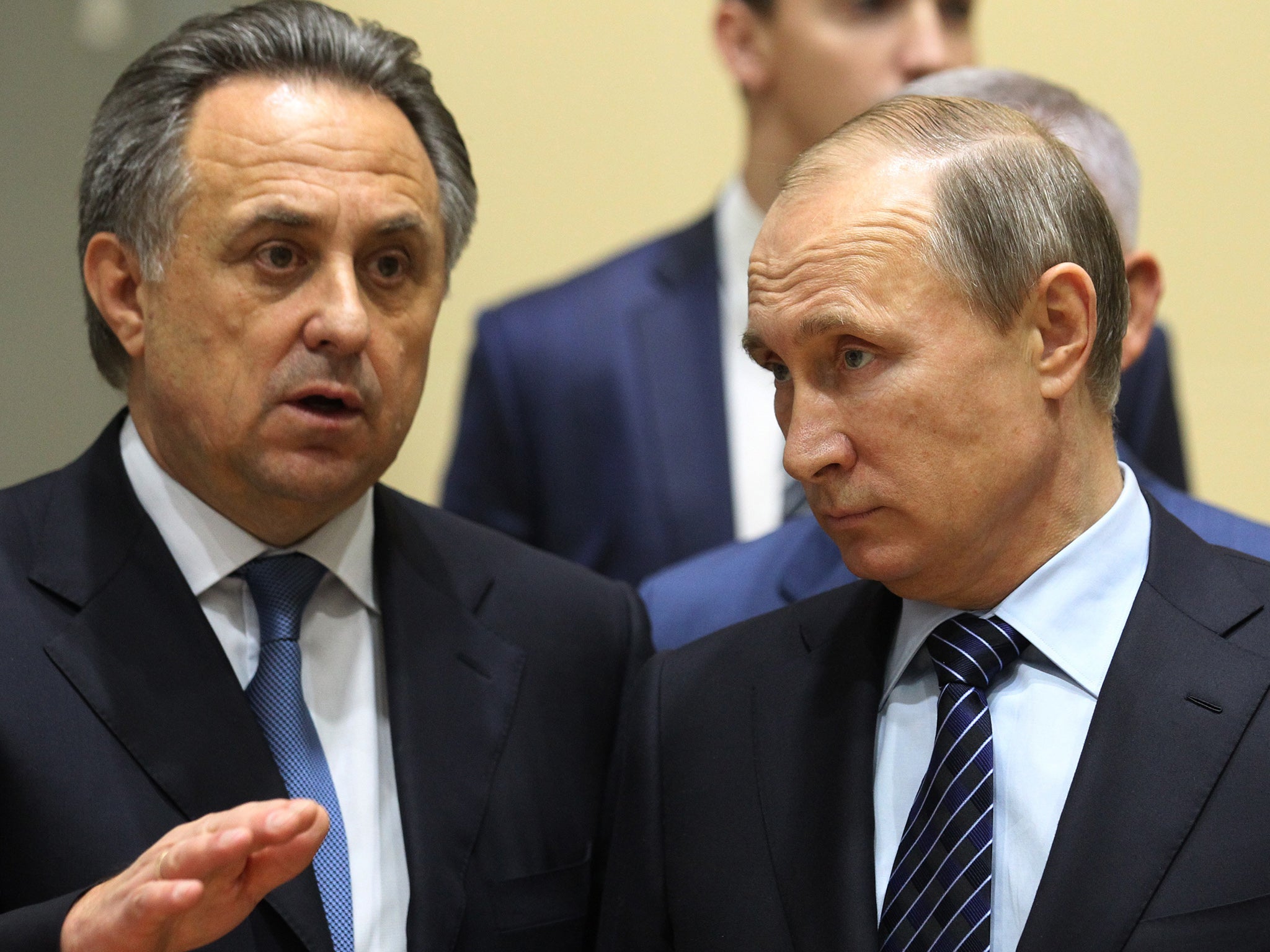In banning Russia from the 2018 Winter Games the IOC has moved to restore its integrity - it's time Fifa did the same
The IOC has taken a big step forward in banning Russia from Pyeongchang - but it's a ruling not without its flaws and one which now drags Fifa into the quagmire

Your support helps us to tell the story
From reproductive rights to climate change to Big Tech, The Independent is on the ground when the story is developing. Whether it's investigating the financials of Elon Musk's pro-Trump PAC or producing our latest documentary, 'The A Word', which shines a light on the American women fighting for reproductive rights, we know how important it is to parse out the facts from the messaging.
At such a critical moment in US history, we need reporters on the ground. Your donation allows us to keep sending journalists to speak to both sides of the story.
The Independent is trusted by Americans across the entire political spectrum. And unlike many other quality news outlets, we choose not to lock Americans out of our reporting and analysis with paywalls. We believe quality journalism should be available to everyone, paid for by those who can afford it.
Your support makes all the difference.Make no mistake, the decision to ban Russia from next year’s Winter Games is unprecedented. Indeed, never before has the International Olympic Committee issued a blanket-ban to a nation for the subversion of anti-doping rules. Travis Tygart, head of the US Anti-Doping Agency, called it the most important decision to be made in the history of the modern Games while Sir Hugh Robertson, chairman of the British Olympic Association, described the ruling as “a seminal moment in the battle against doping”. Tuesday’s announcement, made by IOC President Thomas Bach, clearly casts a dark shadow over the sport but equally offers hope for the future.
It is also a decision that has been long overdue. In light of “watertight” evidence pointing to a programme of state-sponsored doping, first alluded to by whistle-blower Grigory Rodchenkov, former director of Russia's anti-doping laboratory, and then corroborated by Dr Richard McLaren’s findings, the Oswald Commission and Schmid report, justice has been served to a national team that, between 2012 and 2015, drugged, doped and deceived its way to Olympic glory.
Alongside Russia’s exclusion from Pyeongchang next year, Vitaly Mutko, former Sports Minister and organiser for the 2018 World Cup, has been banned from all future Olympic Games. In his report to the IOC executive board, Samuel Schmid wrote that it was Mutko who “had the ultimate administrative responsibility for the acts perpetrated at the time".
Finally, it seems, the IOC has shown its hand and asserted itself with the sort of authority expected from the governing body. The decision has been widely welcomed – and with good reason. Max Antoine, a bronze medallist at the 2014 Winter Games, captured the mood of the moment when he said: “For as critical as I’ve been of the IOC's handling of this issue, ultimately they got it right. I, and athletes around the world, thank you for preserving the integrity of Olympic competition.”
But the disheartening reality of the matter is that this is not so much a case of preservation but restoration. Last year, prior to the 2016 Games, the IOC had the chance to punish Russia for its transgressions but shirked responsibility. By May of last year the world was aware of how the country’s secret service, the FSB, had manipulated a system to open supposedly tamper-proof urine bottles, switch positive samples for negative ones and, as claimed by Rodchenkov, enable 15 Russian athletes to walk away from Sochi 2014 with Olympic medals around their neck.
The 2016 McLaren report confirmed as much, and concluded 1,000 athletes across 30 sports benefited from the doping programme between 2012 and 2015, but still Bach, a close friend of Vladimir Putin, passed the buck despite calling the findings “a shocking and unprecedented attack on the integrity of sports and on the Olympic Games” – a line he regurgitated in Lausanne on Tuesday.

That the IOC has finally opted to ban Russia is, of course, a step forward for the sport and the organisation. The decision to permit ‘clean’ Russian athletes to compete at next year’s Winter Games equally points to well-handled justice. Former Great Britain bobsleigher John Jackson said such a compromise was “fair and justifiable”. On the other side of the table, ROC President Alexander Zhukov said his country could take positives from the news.
Still, there’s a lingering sense the IOC have failed to land the hammer blow. Those given the green light to compete at Pyeongchang will we be designated “Olympic Athletes from Russia” and not “Independent Olympic Athletes” – as many will have wanted. Similarly, restrictions are expected to be lifted on the last day of the competition, meaning Russian athletes will compete under their own flag and anthem in South Korea in what makes for an unwelcome concession.
Perhaps most suggestively, the IOC was careful not to implicate the Kremlin. The Schmid report confirmed that the disciplinary commission "has not found any documented, independent and impartial evidence confirming the support or the knowledge of this system by the highest state authority.” Even in condemning Putin’s country, it seems Bach remains incapable of pointing the finger at Putin himself – a man who Rodchenkov claims was fully aware of the doping programme.

The IOC now hopes to “draw a line under this damaging episode” but this is unlikely given the far-reaching implications of the ruling, which now pull Fifa into the quagmire and raise new questions over the integrity of football’s governing body.
The scene of the 2018 World Cup opening ceremony will certainly reinforce the morally questionable nature of this governing network. A former KGB agent, a corrupt ex-president of Fifa, and the main man on the IOC’s ‘not wanted’ list sat in the plush comforts of the executive suite that will likely host these three men at the Luzhniki Stadium next summer.
For this is the sight that will greet us when the World Cup gets underway. President Putin, the disgraced Sepp Blatter, who earlier this year accepted Putin’s invitation to the competition, and Mutko, standing shoulder by shoulder, sipping champagne and dining on Caspian caviar as the world’s greatest show kicks off. The game they’ll be watching? Russia vs Saudi Arabia.
The IOC’s ruling, then, holds deeply embarrassing repercussions for Fifa who simply “noted” Tuesday’s conclusions and insisted that they would have “no impact” on the 2018 World Cup, meaning Mutko’s position as chief organiser is not in jeopardy. Given the organisation’s record on these matters – it currently remains unclear if the body intends to take action against Russia's 2014 squad members who were highlighted as "people of interest" in the McLaren findings – it’s no surprise that Fifa has hardly blinked an eyelid at this latest development.
The IOC has at long last moved to get its house in order but whether or not Fifa does the same remains to be seen. Though we probably know how that will pan out already.
Join our commenting forum
Join thought-provoking conversations, follow other Independent readers and see their replies
Comments